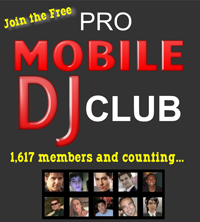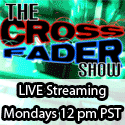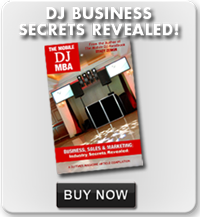by Dave Austin
When it comes to weddings, nothing establishes an elegant and sophisticated mood quite like classical music. It can be restrained and soothing, grandiose and inspiring, or joyous and celebratory. Any DJ who does weddings should have a library of both traditional and contemporary classical selections.
Most of these works have been around for generations and may be considered passé by today’s standards. However, there are modern renditions which run the gamut from solo piano to small ensembles (Piano, harp & flute, etc.) to full symphony orchestras. In practice, a large, formal affair may require symphonic versions, while for smaller, more intimate ceremonies, a better choice may be contemporary, simpler or quieter renditions.
By using music at key points in the ceremony, you can fine-tune the tone of the entire wedding, establish a theme and set the mood for the event. Having a working knowledge of this genre is essential, so let’s break it into the basic components.
Wedding music is traditionally divided into four major segments in keeping with the parts of the ceremony. First, there is the Prelude (sometimes called the Interlude). We can relate this to “cocktail” or “dinner” music at a reception. Selections should be less intrusive and lower in volume while guests are arriving and being seated. Frequently, “light” classical is used here. These are selections with recognizable melodies and, in some cases, even orchestral works from movie soundtracks. (I’ve played Randy Newman’s “Suite from Pleasantville,” during the prelude.)
Prelude suggestions
Sonata in E Flat (Mozart)
Water Music (Handel)
Etude in E Major (No Other Love) (Chopin)
Jesu, Joy of Man’s Desiring (Bach)
Clair de Lune (Debussy)
Ave Maria (Schubert)
Wedding Song (There Is Love) (Bradley)
Liebestraum (Dream of Love) (Liszt)
Next, the Processional begins as the bride and groom’s immediate families and honored guests are escorted in and seated. Rather than being “background” music, these songs should strike an emotional chord and communicate the importance of the moment. Once the seating has been completed and the wedding party are standing in their assigned spots, the music serves as the cue that the bride is about to make her dramatic entrance.
Processional suggestions
Canon in D (Pachelbel)
Trumpet Voluntary (Clarke)
Praise To Thee We Sing (Hayden)
Processional (Marc-Antoine Charpentier)
Brandenburg Concerto, No. 4 (Bach)
Grand March from Aida (Verdi)
Bridal Chorus (Wagner)
Within the ceremony there may be a unity candle, sand ceremony, or other special event. These songs are usually more contemporary or current, but the Ave Maria is still a frequent selection.
Concluding the ceremony is the Recessional in which the B&G, attendants and family depart the church or venue. This is the happy part, and the music should be joyful, triumphant and give the entire wedding party a blazing sendoff.
Recessional suggestions
Wedding March (Mendelssohn)
Ode to Joy (Beethoven)
Tune in D (Purcell)
Hallelujah Chorus (Handel)
Toccata (Charles-Marie Widor)
Triumphal March (Grieg)
Allegro Assai (Bach)
The B&G and wedding party have made their exit and guests are headed to the reception. Postlude selections should be “lighter and brighter,” establishing an elevated mood which the departing guests will take to the party which follows. Once the officiant or minister dismisses the guests, you may want to transition from classical to more contemporary selections.
Postlude suggestions
On Wings of Song (Mendelssohn)
Little Suite from The Anna Magdalena Notebook (Ist & 2nd Movements) (Bach)
Sonata No. 11 Rondo Alla Turca (Mozart)
Symphony No. 40, Molto Allegro (Mozart)
Bagatelle (Beethoven)
Check your local music store, or on-line sources. There are a number of specialized CDs dedicated to traditional and contemporary wedding music. Then, when your bride wants to come down the aisle to the majestic strains of Verdi’s “Grand March,” you can confidently reply, “I have that in my library!”
Dave Austin – Music Professor
Dave Austin began his career at age 13 at a small, hometown radio station. He went on to graduate from the University of Southern Mississippi with a Bachelor’s degree in broadcasting.
Since that time, Dave has been a mobile and radio DJ, radio station Program Director, and a TV news reporter and anchorman. He has also done voiceover work for documentaries and commercials.
In 1986 Dave’s longtime passion for music prompted him to start “Southern Celebrations DJs,” a multi-system mobile entertainment company serving clients in Tennessee, Northern Georgia and Northern Alabama.
You can email him c/o [email protected] or visit his website – Moonlight Mobile Music.
![]() Tweet This Post
Tweet This Post









